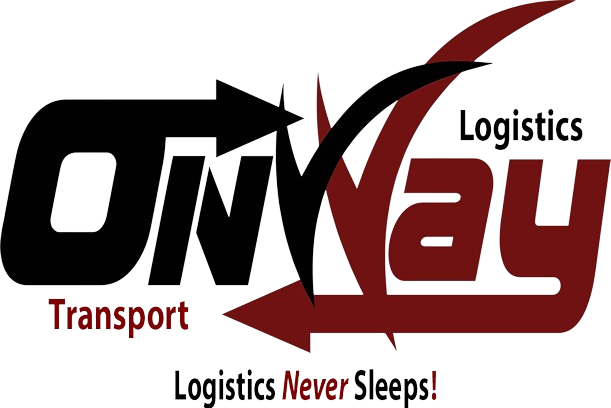The Future of Transport & Logistics: Trends to Watch in 2025
As we step into 2025, the transport and logistics industry is poised for significant transformations driven by technology, sustainability, and evolving consumer expectations. These trends will not only shape how goods are moved globally but also redefine efficiency, cost structures, and environmental impact.
In this blog, we explore the key trends revolutionizing the sector and how businesses can adapt to stay competitive.
1. Autonomous Vehicles Taking Center Stage
The Rise of Self-Driving Trucks
Autonomous vehicles (AVs) are no longer just a concept. By 2025, several logistics companies are testing and integrating self-driving trucks into their fleets. These vehicles promise:
- Reduced Costs: Eliminating the need for human drivers lowers operational costs.
- 24/7 Operations: AVs don’t require rest, enabling continuous transportation.
- Enhanced Safety: Advanced AI reduces the risk of human error, leading to fewer accidents.
Last-Mile Delivery Automation
Delivery robots and drones are becoming staples in last-mile logistics. Companies like Amazon and FedEx are leveraging drone technology to meet growing demand for fast, contactless delivery.
2. Sustainability at the Forefront
Green Logistics
As environmental concerns mount, the logistics industry is adopting eco-friendly practices:
- Electric Vehicles (EVs): Major logistics players are transitioning to electric fleets to reduce carbon footprints.
- Alternative Fuels: The adoption of hydrogen and biofuels is increasing as companies seek to meet stringent emissions standards.
- Sustainable Packaging: Reducing plastic use and investing in biodegradable materials for packaging is a key focus.
Carbon Neutrality Goals
Many companies are committing to net-zero carbon emissions by 2030. Logistics providers are prioritizing carbon offset programs and renewable energy sources to align with these goals.
3. Smart Logistics with IoT and AI
Internet of Things (IoT)
IoT-enabled devices are transforming supply chains by providing real-time data on:
- Vehicle Tracking: GPS and IoT sensors offer visibility into shipment locations.
- Condition Monitoring: Sensors track temperature, humidity, and vibration, ensuring the integrity of sensitive goods like pharmaceuticals.
- Predictive Maintenance: IoT systems detect potential vehicle issues before they lead to breakdowns, minimizing downtime.
Artificial Intelligence (AI)
AI is optimizing operations through:
- Route Optimization: AI algorithms identify the fastest, most fuel-efficient routes.
- Demand Forecasting: Machine learning predicts demand spikes, helping businesses plan inventory and shipping.
- Warehouse Automation: AI-powered robots enhance picking, packing, and sorting processes.
4. Blockchain Enhancing Transparency
Blockchain technology is revolutionizing logistics by ensuring:
- Secure Transactions: Immutable ledgers prevent fraud and unauthorized modifications.
- Enhanced Traceability: Blockchain tracks goods from origin to delivery, fostering trust among stakeholders.
- Smart Contracts: Automating payment and compliance processes reduces administrative overhead.
Use Cases in Logistics
- Food Supply Chains: Blockchain ensures traceability for perishable goods, reducing food waste.
- Pharmaceutical Logistics: Enhances the security of temperature-sensitive drugs by maintaining accurate records.
5. Advanced Robotics in Warehousing
Robotics is playing an increasingly pivotal role in logistics warehouses:
- Autonomous Mobile Robots (AMRs): These robots navigate warehouses independently, moving goods efficiently.
- Collaborative Robots (Cobots): Designed to work alongside humans, cobots enhance productivity without replacing the workforce.
- AI-Integrated Systems: AI-driven robotics streamline operations, reducing errors and speeding up order fulfillment.
6. E-Commerce Driving Last-Mile Innovation
With e-commerce continuing its upward trajectory, last-mile delivery has become a battleground for logistics providers:
- Same-Day Delivery: Retailers and logistics companies are focusing on ultra-fast delivery options to meet customer expectations.
- Micro-Fulfillment Centers: Strategically located mini-warehouses allow faster order processing and reduce delivery times.
- Crowdsourced Delivery: Platforms like DoorDash and Instacart are inspiring new delivery models, where gig workers play a role in logistics.
7. Big Data Analytics Transforming Decision-Making
Big data is reshaping logistics strategies by providing actionable insights:
- Fleet Optimization: Data on fuel consumption, driver behavior, and traffic patterns helps improve fleet efficiency.
- Customer Insights: Analyzing delivery data allows companies to enhance customer satisfaction through personalized services.
- Risk Management: Predictive analytics identify potential disruptions, such as weather events or geopolitical issues, enabling proactive measures.
8. Urban Logistics and Smart Cities
As urban populations grow, the need for efficient logistics in congested cities is rising:
- Smart City Infrastructure: Integration of IoT and AI in urban planning enables smoother logistics flows.
- Urban Consolidation Centers (UCCs): These hubs consolidate deliveries to reduce traffic congestion and emissions in city centers.
- Electric Cargo Bikes: An eco-friendly solution for last-mile deliveries in densely populated areas.
9. Cybersecurity in the Digital Age
With increasing reliance on digital systems, logistics companies are facing heightened cybersecurity risks:
- Data Breaches: Protecting sensitive customer and operational data is crucial.
- Ransomware Attacks: Ensuring uninterrupted operations requires robust cybersecurity protocols.
- Blockchain Security: The integration of blockchain adds an extra layer of protection against data tampering.
10. Resilience in the Face of Global Disruptions
The COVID-19 pandemic highlighted vulnerabilities in global supply chains. Moving forward, resilience is a top priority:
- Diversified Supply Chains: Companies are reducing reliance on single suppliers or regions.
- Local Sourcing: Nearshoring and onshoring are gaining traction to mitigate risks associated with international shipping.
- Scenario Planning: Advanced modeling tools are helping businesses prepare for disruptions like pandemics, natural disasters, or geopolitical conflicts.
How Businesses Can Prepare for the Future
To thrive in 2025 and beyond, businesses must:
- Invest in Technology: From AI and IoT to blockchain and robotics, staying ahead requires adopting cutting-edge solutions.
- Prioritize Sustainability: Meeting regulatory demands and consumer expectations for eco-friendly practices is critical.
- Focus on Customer Experience: Fast, reliable, and transparent delivery processes will differentiate successful companies.
- Enhance Workforce Skills: Upskilling employees to manage advanced systems ensures seamless operations.
Conclusion: A Transformative Year Ahead
The transport and logistics industry in 2025 is set to undergo monumental changes, driven by innovation, sustainability, and a commitment to resilience. Companies that embrace these trends will not only optimize operations but also redefine how goods are moved in an increasingly interconnected world.
By staying ahead of these shifts, businesses can position themselves as leaders in an industry that is more dynamic than ever.

